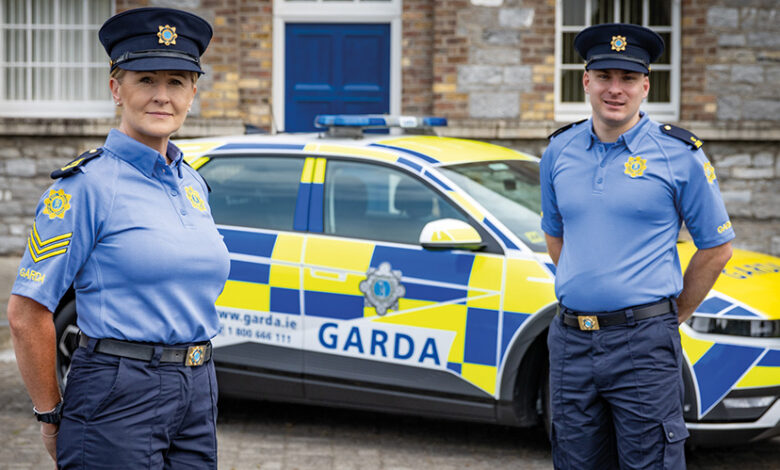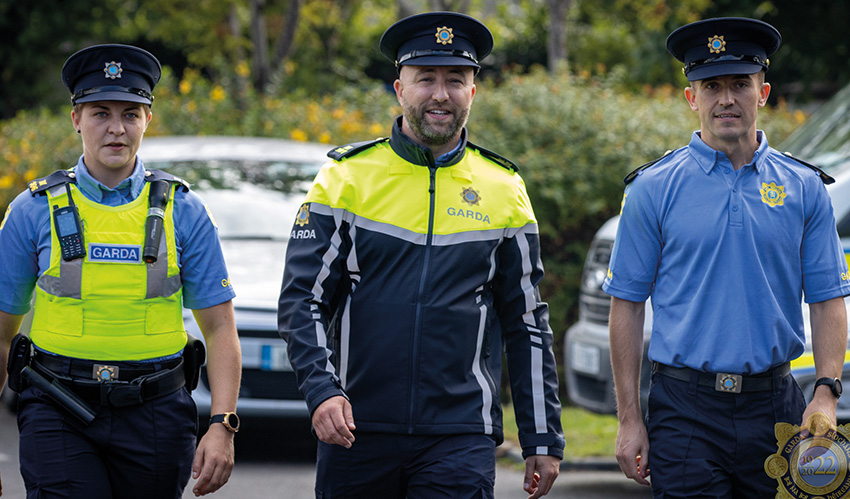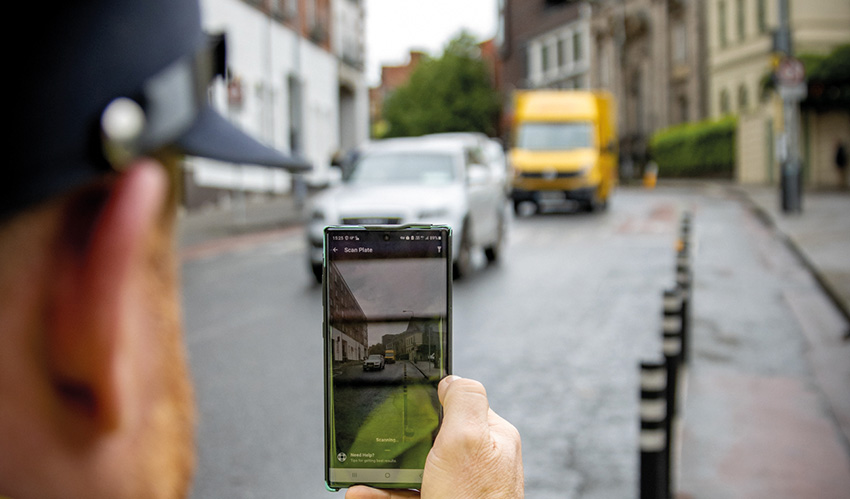An Garda Síochána: Policing by consent for 100 years

This year marks the centenary of the establishment of Ireland’s police and national security service. In the 100 years since then, An Garda Síochána has built and maintained a strong relationship with communities by adhering to the ethos of the first Commissioner Michael Staines – policing not by force of arms or numbers, but on our moral authority as servants of the people.
The preservation of this unique and special bond, which is built on a strong tradition of policing by consent, would not have been possible without continuing to change and evolve with those we serve.
Currently, An Garda Síochána is undergoing some of the biggest changes in its history with a new organisational structure, the introduction of cutting-edge technologies, an enhanced emphasis on human rights, and even a new uniform
The Report of the Commission on the Future of Policing in Ireland (CoFPI), and the related strategic plan, A Policing Service for our Future (APSFF), published in September 2018, outlined a clear vision to ensure that An Garda Síochána stands ready to take on the future challenges and complexities presented by modern policing.
Since commencing implementation, An Garda Síochána has worked in partnership with other key stakeholders, including the Department of An Taoiseach and the Department of Justice, to undertake the most ambitious reform of policing in the organisation’s 100-year history.
The APSFF programme has embraced the 10 principles for the future of policing which are at the core of the transformation agenda within An Garda Síochána, including that human rights are the foundation and purpose of policing, that An Garda Síochána should be structured and managed to support frontline policing, and that policing must be information-led, adaptive, innovative and cost effective.
With these principles in mind, a Human Rights Unit was established and over 2,000 Garda personnel have undertaken a level eight certificate on policing and human rights from the University of Limerick, which was designed in collaboration with An Garda Síochána, with further opportunities for participation.
To structure the organisation to support frontline policing, a significant new operating model is being introduced. This will increase the number of front-line Gardaí, provide a more localised service to communities based on their specific needs, and see more specialised police services delivered at local level in areas such as fraud, cybercrime, and domestic abuse.
Already, over 300 Gardaí have moved from administrative roles to frontline policing duties focused on keeping people and communities safe from crime or harm. The number of Garda staff (civil servants) is being increased to support our emphasis on community-based policing, many in highly specialised roles.
Other supports for Gardaí to deliver best-in-class frontline policing include a significant increase in front-line supervisors at sergeant and inspector rank, greater transparency in promotions processes, and enhanced trauma and mental health supports for Garda personnel.
There has been momentum to digitise policing in Ireland. A range of critical digital infrastructure is being rolled out nationally.
Close to 10,000 mobility devices, which are mobile workstations and phones, have been provided to Gardaí enabling fixed charge penalty notices to be issued at roadside and reducing time spent by Gardaí on paperwork.
This innovation has saved thousands of people hours, enhanced road safety, and is regarded as one of the most cutting-edge policing systems in the world. Already, hundreds of thousands of fixed charge notices have been issued using these devices.
Systems to manage the operational work of An Garda Síochána are being extensively implemented. Ireland connected with the Schengen Information System (SIS) in early 2021, the most widely used and largest information sharing system for security and border management in Europe. Joining this system has already resulted in considerable successes. Since its implementation, Gardaí have arrested more than 160 people who had been engaged in crimes such as drug trafficking, robbery, sexual assault, and fraud.
In further technology developments, a new incident management system to support serious crime investigation has been launched, and a deployment management system is in operation in 10 divisions to date.
Centering ourselves as an information-informed police service in the spirit of the APSFF strategy has made great strides. Updates to the PULSE system to inform the nuance of crime types and motivations have greatly enhanced An Garda Síochána’s analysis fields to inform both operational prevention and response methods.

“Ireland connected with the Schengen Information System (SIS) in early 2021, the most widely used and largest information sharing system for security and border management in Europe… Since its implementation, Gardaí have arrested more than 160 people who had been engaged in crimes such as drug trafficking, robbery, sexual assault, and fraud.”
A prime example of this is the organisation’s proactive analysis and release of a review by the Garda Analytics Service of data relating to domestic, sexual, and gender-based violence, providing insight to the motives behind very serious incidents, to inform the approach to preventing and reacting to such incidents not only by the Gardaí, but also on a whole-of-society level.
To keep people safe, increased specialised bureaux have been established, such as highly professional trained officers preventing and investigating areas such as cybercrime, sexual and domestic abuse, and an internal Anti-Corruption Unit.
The flow of information and communications, one of the core tenets of APSFF, internally and externally have been augmented. Award-winning internal communications initiatives are in place, and the public has new ways of engaging with An Garda Síochána such as online hate crime reporting, online reporting of theft, and a new property app.
One of the most visible reforms of An Garda Síochána has been the introduction of a new operational uniform, launched in 2022. Requests from members of An Garda Síochána for a new uniform came via the first Garda Culture Audit in early 2018, and were echoed in the consultation submissions
to the Commission of the Future of Policing in Ireland.

Further developments to enhance our ability to keep people safe to be introduced under APSFF include a new computer-aided dispatch system in early 2023, the introduction of body-worn cameras, and further enhancements to information-informed and evidence-based policing and security services.
W: www.garda.ie






